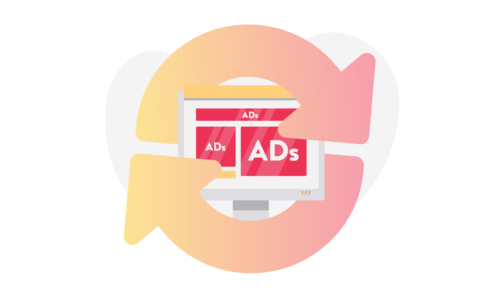How to Avoid Clawbacks and Bans from Google?
In these difficult times, no Publisher wants to suffer from additional clawbacks; or indeed any potential demand decrease or limitation arising from a policy violation, especially when it may be imposed by such a crucial market player as Google.
In order to keep your inventory safe from any sort of clawbacks and bans from Google, Publishers need to be aware of the risk and remain abreast of all new and upcoming policy and restriction changes and developments, particularly as Google is constantly reviewing its policies in order to keep the dynamic ad tech ecosystem in equilibrium.
A recent and a significant update to Google Publisher Policies and Restrictions was the introduction of the alignment of content policies across all Google Publisher Products (AdSense, AdMob, Ad Manager). From the Publisher perspective, it has simplified the framework; as from now on the same content policies apply to all Google products. It is important to note that, together with this development, additional changes have been introduced. Some policy violations have been moved to restrictions, which means that they can bring the risk of limited demand sources but not an account termination risk.
How to Avoid Bans and Clawbacks from Google? First things first

Let’s start with a short explanation of the main difference between policy and restriction violations in terms of the consequences they can have on a Publisher’s revenue.
Google Publisher Policies are those types of content that are not allowed to show ads through any of Google’s Publisher products. Restrictions identify content that is restricted from receiving certain sources of advertising. So, in the first case, the content can not be monetised at all; and in the second one, it can be monetised to some extent. During our recent Yieldfest 2020 event, Chris Jones, Senior Publisher Policy Communication Strategist, Trust & Safety at Google shared a helpful example, which throws light on the issue.
Before the change, Alcohol Sales and Misuse Content would violate the policy (Google would apply the same approach to Sexual Content), which means that Google Ads wouldn’t be placed on pages containing any content that facilitates the online sale of alcoholic beverages or promotes alcohol consumption. As they were moved to Restrictions, Alcohol Sales and Misuse Content no longer violate the policy, but this may not be appealing to all Advertisers. As a result, this restricted content may receive less advertising than non-restricted content would. So, it is possible for a Publisher to monetize content covered by Google Publisher Restrictions. But the Publisher needs to keep in mind that this content will likely generate less revenue, as it will receive less advertising.
Some additional changes are also worth reviewing.
To summarise
Changes which have been introduced in the last few months:
Update to Google Publisher Policies – Supported languages and no content (from September 15, 2020), which prohibits the monetization of new web pages, sites or apps using AdSense, Ad Manager or AdMob that are not primarily in one of the Google supported languages, or do not contain content.
Update to Google Publisher Policies for Misrepresentative content, which clarifies that Google prohibits content that ‘makes claims that are demonstrably false and could significantly undermine participation or trust in an electoral or democratic process’ (enforcing started on September 1, 2020 in the United States and on October 1, 2020 in all other countries). Google claims to take violations of this policy very seriously and considers them egregious (risk of your accounts being suspended).
Update to Standard Contractual Clauses (SCCs). As of August 12, 2020, Google will rely on the European Commission’s Standard Contractual Clauses (SCCs) for the transfers of online advertising and measurement personal data out of the European Economic Area, the UK, or Switzerland.
Update from August 2020 to Dangerous and Derogatory content: that prohibits content that ‘relates to a current, major health crisis and contradicts authoritative, scientific consensus’ and an update to Google Publisher Policies for Enabling Dishonest Behavior, which clarifies restrictions on advertising or monetizing content that ‘promotes spyware and surveillance technology. The updated policy will prohibit the promotion or monetization of content that enables a user, or promotes products and services that enable a user, to track or monitor another person or their activities without their authorization’. This policy will apply globally.
Avoiding Clawbacks and Bans from Google: Questions & Answers

During the Yieldfest 2020 event, we also had a chance to discuss some of the questions that had cropped up during our conversations with Publishers. Below I have listed a number of them.
Limit to the number of ads on PV
The general idea is that advertising and other paid promotional material added to the pages should not exceed the content. With this in mind, Google may limit or disable ad serving on pages with not enough of the value and/or excessive advertising
Ad refresh
It is crucial to remember that using a non-declared ad refresh is a violation of Google policy, including improper declaration (e.g. declaring the wrong trigger type or refresh interval).
Cryptocurrency related content
It is allowed to monetize such content with Ad Manager, AdSense, and AdMob.
UGC content
Google policies apply to all content; so if the Publisher includes user comments, they need a system to monitor this content in real time, and which will flag abusive content. The solution here might be to use a third-party application, or to keep user comments on pages without Google ad codes.
Stay informed…
The question we are posed quite often is where to check the status about potentially being banned for any violation. The recommended point of reference is the Policy Center from where Publishers can learn/acquire:
- which apps/pages have policy issues,
- information on how those pages/site/apps are in violation,
- the steps which a Publisher needs to take in order to comply with the policies,
- request a review after addressing the violations.
It is worth mentioning that if one site or a site section gets banned, this won’t affect the performance or perception of other sites.
…and updated
The best sources of knowledge are Google Publisher Policies and Restriction Documents available from Google’s Help Center. So, in order to keep up to date it is a good practice to check once a month the Help Center logs, where Google announces the recent updates for Ad Manager, AdSense, and AdMob.







